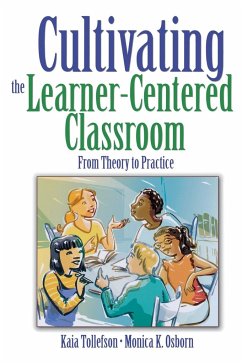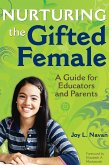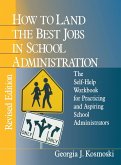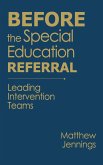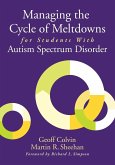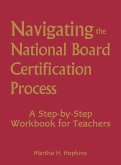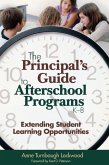- Gebundenes Buch
- Merkliste
- Auf die Merkliste
- Bewerten Bewerten
- Teilen
- Produkt teilen
- Produkterinnerung
- Produkterinnerung
Drawing from progressive educational thought, this guide helps teachers translate theory into classroom practice in seven crucial areas, including developing communities of learners, planning instruction, and more.
Andere Kunden interessierten sich auch für
!['Whole-Brain' Behaviour Management in the Classroom 'Whole-Brain' Behaviour Management in the Classroom]() Chris Derrington'Whole-Brain' Behaviour Management in the Classroom174,99 €
Chris Derrington'Whole-Brain' Behaviour Management in the Classroom174,99 €![Nurturing the Gifted Female Nurturing the Gifted Female]() Joy L. NavanNurturing the Gifted Female74,99 €
Joy L. NavanNurturing the Gifted Female74,99 €![How to Land the Best Jobs in School Administration How to Land the Best Jobs in School Administration]() Georgia J. KosmoskiHow to Land the Best Jobs in School Administration66,99 €
Georgia J. KosmoskiHow to Land the Best Jobs in School Administration66,99 €![Before the Special Education Referral Before the Special Education Referral]() Matthew JenningsBefore the Special Education Referral71,99 €
Matthew JenningsBefore the Special Education Referral71,99 €![Managing the Cycle of Meltdowns for Students With Autism Spectrum Disorder Managing the Cycle of Meltdowns for Students With Autism Spectrum Disorder]() Geoff ColvinManaging the Cycle of Meltdowns for Students With Autism Spectrum Disorder39,99 €
Geoff ColvinManaging the Cycle of Meltdowns for Students With Autism Spectrum Disorder39,99 €![Navigating the National Board Certification Process Navigating the National Board Certification Process]() Martha H. HopkinsNavigating the National Board Certification Process77,99 €
Martha H. HopkinsNavigating the National Board Certification Process77,99 €![The Principal's Guide to Afterschool Programs, K-8 The Principal's Guide to Afterschool Programs, K-8]() Anne Turnbaugh LockwoodThe Principal's Guide to Afterschool Programs, K-862,99 €
Anne Turnbaugh LockwoodThe Principal's Guide to Afterschool Programs, K-862,99 €-
-
-
Drawing from progressive educational thought, this guide helps teachers translate theory into classroom practice in seven crucial areas, including developing communities of learners, planning instruction, and more.
Hinweis: Dieser Artikel kann nur an eine deutsche Lieferadresse ausgeliefert werden.
Hinweis: Dieser Artikel kann nur an eine deutsche Lieferadresse ausgeliefert werden.
Produktdetails
- Produktdetails
- Verlag: Corwin
- Seitenzahl: 216
- Erscheinungstermin: 6. Dezember 2007
- Englisch
- Abmessung: 260mm x 183mm x 16mm
- Gewicht: 610g
- ISBN-13: 9781412949965
- ISBN-10: 1412949963
- Artikelnr.: 22975241
- Herstellerkennzeichnung
- Libri GmbH
- Europaallee 1
- 36244 Bad Hersfeld
- gpsr@libri.de
- Verlag: Corwin
- Seitenzahl: 216
- Erscheinungstermin: 6. Dezember 2007
- Englisch
- Abmessung: 260mm x 183mm x 16mm
- Gewicht: 610g
- ISBN-13: 9781412949965
- ISBN-10: 1412949963
- Artikelnr.: 22975241
- Herstellerkennzeichnung
- Libri GmbH
- Europaallee 1
- 36244 Bad Hersfeld
- gpsr@libri.de
Kaia Tollefson's career in education began in Kodiak, Alaska, in 1983. She was a middle school teacher there for nine years and worked in administration for the next five-first as a curriculum and staff development coordinator and then as an elementary school principal. She discovered a passion for teacher education while pursuing her doctoral degree in language, literacy, and sociocultural studies, awarded by the University of New Mexico in 2004. Her most recent experience in teaching children was in 2002, when she returned to the classroom to teach fifth grade. One of her professional goals is to find ways to refresh and reground her roots in the public schools, never getting too far away from knowing what it means to be a classroom teacher. She is currently an assistant professor of education at California State University Channel Islands, working in teacher education, coaching a Critical Friends Group, and exploring the relationship between the concept of voice and the processes of teaching and learning.
Preface
Time to Learn
Fighting for Hope
Acknowledgments
About the Authors
Introduction: Progressivism and Traditionalism-A Continuum of Educational
Thought
1. Facilitating Community Development in the Classroom
The Teacher's Essential Attributes: Confidence and Humility, Compassion and
Faith
The Basis of the Teacher-Student Relationship: Motivation or Coercion?
Who Decides Who Belongs? A Note on Inclusive Education
From Theory to Practice: Strategies for Facilitating Relationship and
Community
2. Classroom Organization
Finding You in Your Classroom
From Theory to Practice: Strategies for Organizing a Learner-Centered
Classroom
3. Observing and Assessing What Students Know and Can Do
Understanding Terminology
Assumption #1: You Can't Teach Someone You Don't Know
Assumption #2: You Will Assess What You Value
Assumption #3: You Will Never Finish Learning How to Assess Students'
Knowledge
From Theory to Practice: Strategies for Assessing What Students Know and
Can Do
4. Planning Instruction
From Theory to Practice: Strategies for Planning Instruction
5. Evaluating and Reporting Student Growth
Common Assumptions About Grades
A Brief History of Grading
Evaluation as Grading: Critiquing Traditional Purposes of Letter Grades
Learner-Centered Evaluation: Reframing the Purpose of Grading
From Theory to Practice: Strategies for Evaluating and Reporting Student
Progress
6. Facilitating Community Development With Parents
From Theory to Practice: Strategies for Facilitating Community Development
With Parents
7. Holding On: Leading With Heart
On Becoming a "Real" Leader
Democratic Faith: The Final, Essential Component of Leadership
From Theory to Practice: Strategies for Holding On and Leading With Heart
References
Index
Time to Learn
Fighting for Hope
Acknowledgments
About the Authors
Introduction: Progressivism and Traditionalism-A Continuum of Educational
Thought
1. Facilitating Community Development in the Classroom
The Teacher's Essential Attributes: Confidence and Humility, Compassion and
Faith
The Basis of the Teacher-Student Relationship: Motivation or Coercion?
Who Decides Who Belongs? A Note on Inclusive Education
From Theory to Practice: Strategies for Facilitating Relationship and
Community
2. Classroom Organization
Finding You in Your Classroom
From Theory to Practice: Strategies for Organizing a Learner-Centered
Classroom
3. Observing and Assessing What Students Know and Can Do
Understanding Terminology
Assumption #1: You Can't Teach Someone You Don't Know
Assumption #2: You Will Assess What You Value
Assumption #3: You Will Never Finish Learning How to Assess Students'
Knowledge
From Theory to Practice: Strategies for Assessing What Students Know and
Can Do
4. Planning Instruction
From Theory to Practice: Strategies for Planning Instruction
5. Evaluating and Reporting Student Growth
Common Assumptions About Grades
A Brief History of Grading
Evaluation as Grading: Critiquing Traditional Purposes of Letter Grades
Learner-Centered Evaluation: Reframing the Purpose of Grading
From Theory to Practice: Strategies for Evaluating and Reporting Student
Progress
6. Facilitating Community Development With Parents
From Theory to Practice: Strategies for Facilitating Community Development
With Parents
7. Holding On: Leading With Heart
On Becoming a "Real" Leader
Democratic Faith: The Final, Essential Component of Leadership
From Theory to Practice: Strategies for Holding On and Leading With Heart
References
Index
Preface
Time to Learn
Fighting for Hope
Acknowledgments
About the Authors
Introduction: Progressivism and Traditionalism-A Continuum of Educational
Thought
1. Facilitating Community Development in the Classroom
The Teacher's Essential Attributes: Confidence and Humility, Compassion and
Faith
The Basis of the Teacher-Student Relationship: Motivation or Coercion?
Who Decides Who Belongs? A Note on Inclusive Education
From Theory to Practice: Strategies for Facilitating Relationship and
Community
2. Classroom Organization
Finding You in Your Classroom
From Theory to Practice: Strategies for Organizing a Learner-Centered
Classroom
3. Observing and Assessing What Students Know and Can Do
Understanding Terminology
Assumption #1: You Can't Teach Someone You Don't Know
Assumption #2: You Will Assess What You Value
Assumption #3: You Will Never Finish Learning How to Assess Students'
Knowledge
From Theory to Practice: Strategies for Assessing What Students Know and
Can Do
4. Planning Instruction
From Theory to Practice: Strategies for Planning Instruction
5. Evaluating and Reporting Student Growth
Common Assumptions About Grades
A Brief History of Grading
Evaluation as Grading: Critiquing Traditional Purposes of Letter Grades
Learner-Centered Evaluation: Reframing the Purpose of Grading
From Theory to Practice: Strategies for Evaluating and Reporting Student
Progress
6. Facilitating Community Development With Parents
From Theory to Practice: Strategies for Facilitating Community Development
With Parents
7. Holding On: Leading With Heart
On Becoming a "Real" Leader
Democratic Faith: The Final, Essential Component of Leadership
From Theory to Practice: Strategies for Holding On and Leading With Heart
References
Index
Time to Learn
Fighting for Hope
Acknowledgments
About the Authors
Introduction: Progressivism and Traditionalism-A Continuum of Educational
Thought
1. Facilitating Community Development in the Classroom
The Teacher's Essential Attributes: Confidence and Humility, Compassion and
Faith
The Basis of the Teacher-Student Relationship: Motivation or Coercion?
Who Decides Who Belongs? A Note on Inclusive Education
From Theory to Practice: Strategies for Facilitating Relationship and
Community
2. Classroom Organization
Finding You in Your Classroom
From Theory to Practice: Strategies for Organizing a Learner-Centered
Classroom
3. Observing and Assessing What Students Know and Can Do
Understanding Terminology
Assumption #1: You Can't Teach Someone You Don't Know
Assumption #2: You Will Assess What You Value
Assumption #3: You Will Never Finish Learning How to Assess Students'
Knowledge
From Theory to Practice: Strategies for Assessing What Students Know and
Can Do
4. Planning Instruction
From Theory to Practice: Strategies for Planning Instruction
5. Evaluating and Reporting Student Growth
Common Assumptions About Grades
A Brief History of Grading
Evaluation as Grading: Critiquing Traditional Purposes of Letter Grades
Learner-Centered Evaluation: Reframing the Purpose of Grading
From Theory to Practice: Strategies for Evaluating and Reporting Student
Progress
6. Facilitating Community Development With Parents
From Theory to Practice: Strategies for Facilitating Community Development
With Parents
7. Holding On: Leading With Heart
On Becoming a "Real" Leader
Democratic Faith: The Final, Essential Component of Leadership
From Theory to Practice: Strategies for Holding On and Leading With Heart
References
Index

